OPENING A NEW OFFICE IN POST-PANDEMIC CHINA - INTERNAL | E026 PODCAST
LISTEN TO THIS EPISODE ON ALL STREAMING SERVICES
INTERNAL EPISODE FROM HONG KONG
George Stroumboulis sits down with Chris Hartswick in Hong Kong on the Invigorate Your Business Podcast to talk about all things Asia, Local Manufacturing and Opening a New Office in Post-Pandemic China.
George Stroumboulis and Chris Hartswick, Co-Founders of Ideoli Group, sit down in Hong Kong to witness the transformative impact of a global pandemic on their business. The narrative explores the shifts in navigating international expansion and manufacturing complexities, highlighting key moments such as the opening of a new office in mainland China and the valuable lessons learned in ensuring product perfection. Throughout the episode, immersed in tales of adaptation and the irreplaceable value of face-to-face connections that breathe life into projects worldwide.
As the podcast delves into the global manufacturing landscape, the audience gains insight with firsthand accounts with the challenges of scaling production while upholding brand integrity and overcoming obstacles that occasionally necessitate a production reset. The episode provides a candid perspective on the high stakes of international business, where maintaining client relationships and quality standards often requires a delicate financial balancing act.
Ideoli’s Website: https://ideoli.com/
Ideoli’s Instagram: https://www.instagram.com/ideoligroup/
Ideoli’s LinkedIn: https://www.linkedin.com/company/ideoli/?originalSubdomain=in
Ideoli’s Twitter: https://twitter.com/ideoli
“And then you can just hear the German guy talking about the textile industry and then the French guy talking about the paint, you know, and this dork talking about lighting... everyone here is involved with some sort of manufacturing.”
MEDIA RELATED TO THE EPISODE
George Stroumboulis sits down with Chris Hartswick in Hong Kong on the Invigorate Your Business Podcast to talk about all things Asia, Local Manufacturing and Opening a New Office in Post-Pandemic China.
George Stroumboulis sits down with Chris Hartswick in Hong Kong on a trip to China for business - opening new offices, meeting with new partners, overseeing production runs for their clients and meeting lighting design partners for new projects.
George Stroumboulis sits down with Chris Hartswick in Hong Kong on the Invigorate Your Business Podcast to talk about all things Asia, Local Manufacturing and Opening a New Office in Post-Pandemic China.
George Stroumboulis sits down with Chris Hartswick in Hong Kong on the Invigorate Your Business Podcast to talk about all things Asia.
George Stroumboulis sits down with Chris Hartswick in Hong Kong on a trip to China for business - opening new offices.
ABOUT THE “INVIGORATE YOUR BUSINESS” PODCAST
The Invigorate Your Business with George Stroumboulis podcast features casual conversations and personal interviews with business leaders in their respective fields of expertise. Crossing several industry types and personal backgrounds, George sits down with inspiring people to discuss their business, how they got into that business, their path to the top of their game and the trials and tribulations experienced along the way. We want you to get inspired, motivated, and then apply any advice to your personal and professional lives. If there is at least one piece of advice that resonates with you after listening, then this podcast is a success. New episodes weekly. Stream our show on Spotify, YouTube, Apple, Amazon and all other platforms.
ABOUT GEORGE STROUMBOULIS
George Stroumboulis is an entrepreneur to the core, having launched several ventures across multiple industries and international markets. He has held senior-level positions at progressive companies and government institutions, both domestically and internationally, building an extensive portfolio of business know-how over the years and driving profit-generating results. George’s ability to drive real change has landed him in several media outlets, including the front page of the Wall Street Journal. George was born in Toronto, Canada to his Greek immigrant parents. Family first. Flying over 300,000 miles a year around the world puts into perspective how important family is to George’s mental and emotional development. With all this travel to global destinations, the longest he stays even in the most far-out destination is 3 days or less - a personal rule he lives by to make sure he is present and involved in family life with his wife and three daughters. To read about George’s global travels, stay connected with his blog section.
STAY CONNECTED WITH GEORGE STROUMBOULIS
STREAM & LISTEN TO THE PODCAST:
SPOTIFY: https://open.spotify.com/show/1rW2CmxQoiJNEPOZupJlvd
YOUTUBE: https://www.youtube.com/user/Stroumboulis
APPLE iTUNES: https://podcasts.apple.com/us/podcast/invigorate-your-business-with-george-stroumboulis/id1607693240
AMAZON MUSIC: https://music.amazon.com/podcasts/8fc03929-71b3-483a-a64e-153e30b3d462/invigorate-your-business-with-george-stroumboulis
STROUMBOULIS SITE: https://www.stroumboulis.com/podcast
PODCAST SITE: http://www.invigorateyourbusiness.com
FOLLOW GEORGE STROUMBOULIS:
INSTAGRAM: https://www.instagram.com/georgestroumboulis/
YOUTUBE: https://www.youtube.com/user/Stroumboulis
LINKEDIN: https://www.linkedin.com/in/Stroumboulis/
TWITTER: https://twitter.com/Stroumboulis
FACEBOOK: https://www.facebook.com/georgestroumboulis
TIKTOK: https://www.tiktok.com/@georgestroumboulis
CONTACT GEORGE DIRECTLY: https://www.stroumboulis.com/connect
FULL SHOW TRANSCRIPT
George Stroumboulis - Host 00:00
Welcome to another episode of invigorate your business with George Stroumboulis. Today, this episode comes from one of the sexiest, busiest, most diverse cities in the world and, for those listening, you can't see behind me. But this is no green screen. This is the skyline of Hong Kong, an amazing city architecturally. The people are incredible and I personally love being here and doing business on this side of the world. This episode is covering our business post COVID and coming back here four years later after tremendous lockdowns and shutdowns and you know restraints and all this stuff. So I'm excited to be back here. We just opened up our second corporate office in mainland China, so we'll talk about that. We'll talk about all these production runs that we're doing with our business and what we're doing nearly 10 years later with our business on this side of the world and globally. So enjoy this episode of invigorate your business with George Stroumboulis from the beautiful city of Hong Kong, starting now.
George Stroumboulis - Host 01:03
My name is George Stroumboulis and I'm extremely passionate about traveling the world, meeting new people and learning about new businesses. Join me as I sit down with other entrepreneurs to learn about their journeys. This episode of invigorate your business starts now.
George Stroumboulis - Host 01:26
So we're in China, specifically Hong Kong, in this post COVID world. We're not going to talk about COVID, this episode, but we're going to talk about how it affected our business, specifically being over here where we do all our custom manufacturing or strategic partnerships when it comes to sourcing components, all that stuff. But being back here officially four years later like four years ago this time we were coming back to the States hey, there's some virus, something's going on, the world's kind of like drawing more attention, and then, four years later, it's just like wait, that happened quickly. So we'll talk about a few things in this episode. It's good to be sitting with you, it's good to be spending time with you over here, just kind of getting back to the roots of interacting with our vendors and our partners and then going to our factories and just being able to do that. So we'll cover that.
02:22
We'll cover talk about Hong Kong a bit, since we're here, just some stories and some stuff. And then we opened a new office in south of China, the second corporate office in China, sixth office for us globally. I had this pause for a second and we're building a team and we got the team build and see that firsthand. So just a lot of exciting stuff. First question how does it feel being back in China?
Chris Hartswick - Guest 02:48
Yeah, I mean amazing, right. I feel like everybody will sort of understand to a certain extent just thinking about remote work, right. Remote works great, have your own time, you have your own space, all that stuff. But I feel like most people would understand how good it feels to get back to the office every once in a while to see people in person, work with them in person, get a conference room and just whiteboard some ideas and just lay everything out on the line.
03:18
It really seems to be, at least in our business, much more efficient to do that in person. And then talking about China and manufacturing and things like that, it becomes so much more efficient because we're talking about products, right? So now we're not just talking about it and looking at it through a camera, we're physically holding the product in our hands, we're able to bend it, and the whiteboard equivalent of product work is like okay, let's go out into the factory and let's smash this thing up and bend it right in front of us. Let's run through these ideas in real time and see if we can get it to the shape we want, or whatever that is. There's really no replacing physically being here.
George Stroumboulis - Host 04:00
Absolutely, and before we even came here. So, when everything shut down, china was one of the hardest hit countries from measures, or at least what we were seeing outside, and it wasn't even a thought coming back here during it. And yet we're running our business the manufacturing aspect out of mostly China. So you and I were handicapped Pre this. We were here at least every six weeks, one of us with our partners, with our team, with our employees, and then to go from that to not. How important is it that we? We set up such a good team pre COVID and it was able to just quarterback everything you know on the ground here, because we can still quarterback from overseas. But, like you said, it's different when you're on there and you know, for these custom fixtures, certain type of glass and we have to go to several glass suppliers, right?
04:54
So did you see the clip with Elon Musk talking about manufacturing? I don't believe so. Okay, so I'm going to butcher this, but it was on one of the podcasts with maybe like Lex Friedman, and he was talking about manufacturing. He's like there needs to be a show or a documentary just talking about the complexities, because he was talking about a cyber truck and you know they made the prototype, prototypes and that's always easy. But then how do you mass produce a product is where the complexities come in and everything. And he was saying there still hasn't been a Hollywood movie talking about just manufacturing and what goes into that.
05:28
And you know it's similar. Obviously we're in manufacturing. But even developing a light fixture, you know, however complex it may be or simple, it's never just one factory, one component supplier and that's it. There's so many elements and the more complicated we go, because at our company, ideally, we're making some very tech savvy products down to simple products, all the way tech savvy and you know the different components and the optics and the drivers and the LEDs, and now we're doing a lot in the dimming and controllability space. It's not just one supplier, one factory.
Chris Hartswick - Guest 06:04
Right, Well, and you know, going back to the challenges of COVID, it's we're physically not allowed to be here anymore. So because of that, we now have to expand our entire operations here. Right, so we literally doubled our personnel. We doubled technically doubled our office space. Right, because we now opened our second office.
George Stroumboulis - Host 06:26
Yep.
Chris Hartswick - Guest 06:27
And we had to do that because we couldn't come over here, but that also means we did that without coming over here. So we're hiring new employees that we've never physically met in person and talked to. We're opening an office space we haven't been able to go see and walk through and see what that is, you know. So we're relying on our existing employees, which, thankfully, you know, we've had such amazing employees that we trust over here. But we're doing all of that hiring, expanding, opening offices. You know, just like everywhere else in the world, we have suppliers that are going out of business and this guy closes and now we need a new, you know, plating company and we need. We're doing all of this expansion without physically being here, which is just an even bigger challenge in its own.
George Stroumboulis - Host 07:18
Bigger challenge and sometimes you got to sit back and say, you know, pat ourselves on the back that we're able to do that and put us in that position. But again, patting on your back doesn't pay bills and nobody cares. But we opened an office in China. I mean, our first office was eight plus years ago right in the Shanghai area, and that's been a workhorse for us and the team is incredible and we're talking about not just partners, like actual ownership to be able to control the process. Here, right In the south now, where a lot of our other suppliers are component suppliers, we opened up an office, beautiful corporate office, and within the last year but this was the first time that we were able to come over here. So before we talk about that office, let's talk about even the logistics.
08:04
Right, so we've been needing to get over here for the last two years and you hear all these horror stories online about travel to China from the United States or Canada or wherever, and it was like I don't know man who wants to risk it. They're detaining you, they're throwing you in jail, they're going to inject you with 18 different things, like there's been this fear, and then you start seeing a lot of our friends and partners that are here because we're connected. It's like, no, no, I came to the States and came back, no problem. But then you read online or if you go on the State Department website and it's been this game for at least a year, like since last January of 23, we're like we need to go, but who wants to go? Not it right, like one of those.
08:47
So finally we got to the point. Even coming on this trip, we were nervous just from. Hey, there still are stories of people being detained and being injected with whatever their vaccine is, or held against their will. So it's good that we're over here now. You're seeing a lot more Americans coming over, so you're just kind of eliminating that. Still not, who knows, there's still a lot of cases of COVID coming, but yeah, and like you said, logistically it's even after the borders technically opened up.
Chris Hartswick - Guest 09:19
When it first opened up, it was still impossible to get here. There were no flights. You would have to fly to Germany and then Germany to Tokyo and then sleep overnight in Tokyo and then get here. So it'd take you two and a half days just to get here. Feasibly it just what? Did it make sense? Right Then who knows the reason, whether it had posturing between the governments but then the State Department had a website. It wasn't officially banned from coming to China, but it was heavily restricted and if anything happened, they're not going to help you, basically saying the consulates are closed. So if you go over and you need help, there's nobody there to help you and it's like okay, well, that's disheartening.
10:01
I'm not going to risk that. I don't know why it's closed, but I've never needed to use it knock on wood, luckily but it's nice to know it's there. So it's just a lot of strange things, whatever the reasons were, but it does seem like it's now officially opening up. It's still not the way it was. From what aspect? Just east, to be honest, oh yeah.
George Stroumboulis - Host 10:25
Talk about your flight schedules from what you pre-COVID versus now.
Chris Hartswick - Guest 10:29
You used to have probably every major American airline plus major international airlines out of New York, LA, Chicago, Dulles, I think, probably even like Dallas, places like that Atlanta Multiple direct flights every single day, every day of the week, to both North and South China. Now it's like from New York I wanted to get here. There's one direct flight and the prices are eight times what they used to yeah Like literally there's a flight direct on your preferred airline. Yeah, coach seat $20,000 plus. Yeah, $20,000 plus.
George Stroumboulis - Host 11:09
Insane. We're pre-COVID like $1,500 bucks $2,000 for a coach seat, like no problem all day long.
Chris Hartswick - Guest 11:14
Exactly, but now it's starting to get better. Now, right, there's more options. It's definitely not what it used to be. You know, out of New York, it seems like there's still just only one flight a day, direct flight on one single airline, yeah, so a lot of people are obviously fighting for that, which drives the price up Totally.
George Stroumboulis - Host 11:32
A lot of options out of LA and then even being here. So when you land you're like first trip. You're still like what's going on? Everyone's in masks, but pre-COVID a lot of people were in masks right, yeah. We're talking a billion plus people.
Chris Hartswick - Guest 11:45
Fairly normal.
George Stroumboulis - Host 11:46
And your term Saturdays. It's actually smart, they put it on whatever it's like. That's fine Partnerships factors everyone's kind of back to normal, so it's good being here. So our office in China we opened up in the Jiangshan area, which is just a great hub right Access to a lot of the local markets, big airports within a couple hours, exciting Our main manager here in China as well, doing a fantastic job. We're hiring a lot of positions. So obviously we do a lot of our manufacturing here in China, but a lot of our project management comes out of here. Engineering is back in the States, but we have engineering support that we're beefing up as well. And physically, the office that we went to the other day. It's beautiful, downtown, 40 stories, roughly 40. We're on the 30th floor.
12:39
Yeah, the building's about 40 stories. We're on the 30th floor, beautiful corporate space. It was just nice to see that professional side, because when we're in the factories all day, right, you're driving around, everything's two plus hours away and you know factories, the quality it all varies, right, but when you're in a nice corporate, beautiful building, right, like state of the art, everything's digitized. It's just. It's nice to see that contrast, that 180 contrast, you know, and then being able to do that and seeing the team. The building also boasts like a badass karaoke bar. It were great restaurants in the building, so it was great. They had to twist our arm the other night to go for karaoke.
13:21
Yeah like we were just, and then once we got in there, they were annoyed with us because we were like we're gonna put that in the mic. So it was a few hours of that, but just bonding Chris's hand is like stuck in a carpal tunnel just from holding the mic all night.
Chris Hartswick - Guest 13:38
Hey, what can I say? I'm a performer.
George Stroumboulis - Host 13:40
Yeah, but it was just fun. So talk to me about just that experience.
Chris Hartswick - Guest 13:44
Yeah, I think the office is great. I mean, again, going back to, I sort of feel like in many ways for our entire company, covid was, in a way, a necessary reset right. It really made us sort of focus and think about okay, at a necessity, we have to simplify everything, we have to make everything as efficient as possible because of cashflow and all that other stuff. But it really helped on the manufacturing side. We got smarter about where our suppliers were right.
14:14
Yeah, so the beauty of our offices, our corporate offices, is centrally located, everything. It's essentially 30 to 45 minutes in any direction to get to our glass guy, to get to our plating guy, to get that. So it's a true hub in the middle. So all of our employees over here, whether it's our production manager, our QC guy or sourcing guy or procurement guy, they're all in the same spot in the center. They can come together. But then they can quickly shoot out as needed to go make sure that whoever they're reviewing is on schedule, everything's good, the quality's good, and then when we bring it into our facility for assembly, there's no surprises.
George Stroumboulis - Host 14:57
No, and what was the so the previous? We'll talk about that, but that's a big deal. So, like this trip, we didn't spend more than an hour and a half in the car going to those different partners, more or less Right, pre COVID, right and again the ownership we have in our factory. It was a five hour radius. We would sometimes have to drive five hours to go to the glass supplier and work on it and we're talking there and back in a day. There's times that we flew in 14 hours to come here 16 hours and you're in the car 10 hours a day and we're only here for two days on the ground. So it's a dizzying trip, right, when you do that Now, post COVID, being able to do that within the radius and then send our QC team within that radius just changes the dynamics. That's a great point.
Chris Hartswick - Guest 15:45
Absolutely, and even from an actual production standpoint, because, from the Elon Musk documentary, production is hard, manufacturing is hard. No matter even if it's the same thing you've made. You made it thousands of times before. You've been making it for years and years and years. You're still going to have that one round, that one order where all of a sudden something happens and then you have to react right. So you have to be able to react quickly and swiftly and efficiently. And if production shuts down because your QC manager is stuck in traffic four and a half hours away trying to go talk to the Right.
16:26
You know electronics guy. What do you do? You're paying for dead time, you don't? Have producing anything, and then it's just money down the drain.
George Stroumboulis - Host 16:35
So an idea like if you take the last two days, this is our lab, we fly out today, by the way. So anyone listening like we came in two and a half days ago, we fly out today we're in Hong Kong, chris is going to New York, I'm back to LA. Just a dizzying trip. But if you look at the last two days and what was reviewed, discussed, what we were challenged with decisions we had to make on the fly, just with multiple production runs right Pre-COVID, when we were coming here, there was a lot of production runs right Working for this client in this commercial space, this retail client, this hospitality client. But exponentially our business has grown right and across various industries. So there's just that much more that we have to address in real time. But it would be a cool mini documentary, just kind of a day in the life of the manufacturing world. There's so many people involved in manufacturing.
17:27
Just sitting here in Hong Kong and taking the ferry two hour ferry you just hear. First of all, the ferries are so quiet right when you sit upstairs and you can hear everyone breathing. And then you can just hear the German guy talking about the textile industry and then the French guy talking about the paint, you know, and this dork talking about lighting, and you just hear people on calls. It's such a cool place because everyone here is involved with some sort of manufacturing, whatever it may be in any part of the world. Right, it's just this cool melting pot. You get invigorated. In the beginning it was also discouraging, like hey, are we a part of this? You know, when you come here and then once you have and we're going on two decades here you get that confidence. You know what's going on. It's the right questions to ask the suppliers to find within the radius. So it's just, it's a cool melting pot here. So, going back, talk to us a bit about that, just when you're here and you're seeing that ecosystem.
Chris Hartswick - Guest 18:27
Yeah, I mean, it's pretty wild actually, because it's probably the same anywhere in the world to a certain extent, any industry. But you know, you have the assholes, you have the people that are arrogant and don't want to be helpful, and all of that. But then just traveling internationally, but specifically here, because of the hub that Hong Kong and the South of China is, you meet such interesting people and there are so many people that are truly good people and they actually are helpful and want to help. You know, like, just three days ago, waiting for the ferry, like you said, headed over to Zongshan, you know met a British guy that's down here doing sourcing for alcohol, right, he sources bottles and caps and packaging and all this stuff and it's they produce scotch or whatever they're producing in the UK.
19:18
But he's down here for glass, right, and I'm talking with him and I'm telling him where I'm going and he's like, oh, my cousin's over there and my cousin used to do sourcing for won't say the name, but a large commercial lighting company. He's like he's still over there, he's not so much involved in the lighting anymore. Maybe he has some contacts. Let me give you his contact info. And in all of that, in a completely random hour and a half ferry ride new contacts, new people that are just Good people, fun to talk to. You really can't. You'd never find that right. You can't Google search like I need help with manufacturing. It's when you're here you meet the most interesting people and a lot of people actually want to help.
George Stroumboulis - Host 19:59
They do, and I think a lot of that comes with maturity. So you rewind 10 years ago, by the way, eight year kind of anniversary for us launching Ideole, which is kind of a big deal and should be the anchor of this episode but maturity as well, right, when we first launched this company, and even before, you kind of didn't want to share. It's like oh, we're the greatest at what we're doing. I'm not going to talk to you about who a good mold supplier is or who a great partner is. It's this.
20:27
And then the older you get I think right in my early 40s and you're almost 40, you start saying, hey, you have a family, you want to provide for your family and you don't want to waste time on just stupid shit for lack of better words, right?
20:42
So in doing that, I find right now we start sharing trade secrets with even peers in our space, right, other manufacturing partners where we're not directly competing. But in the end you're always competing, right, if you think so. And even in the last couple of years, we're working with partners now that we used to work with back in the day and you essentially compete and it's like hey, you know, where do you produce this type of glass and what's this? In the end, everyone's just chasing their own purchase orders to pay their own bills and we've definitely matured in that space and we're not sharing anything, so it's a big step from a maturity standpoint. What are your thoughts on that? Because we're doing some stuff right now where it's like, yeah, you know what, let's consider using this type of brand or this product from this partner where we wouldn't even think about talking to them because of fear of control.
Chris Hartswick - Guest 21:37
Sure, yeah, and I mean, like you said, it really is that maturity right, sort of being able to actually look at what we're doing from a completely objective point of view and just understanding it's not all rocket science, right, like, yes, of course there's the area where you're developing something new and you're applying for patents and it's not gone through yet. So there are certain areas you don't want to talk about. Of course there is right, there's certain trade secrets and things that you want to keep close to you, and that's fine, but that's maybe 10, 15% of your business, right. The rest of it is hey, I am having trouble. Whatever, that is right, I'm curious, we need help. And when you sort of get over that like no, no, no, that guy's a competitor, you can still learn a lot from each other Totally, and there's nothing wrong with learning a lot from each other Even though you're competitors. It doesn't mean you can't talk through things together and figure it out.
22:36
Absolutely, you're right, it is maturity, because, especially coming off, you're almost it's not a chip on your shoulder pride. However you want to word it, it's like no, no, no, I can't talk to that guy. You know, I see him at a trade show and he's on the other side of the aisle and it's one, it's just a waste of time, it's a waste of energy. But two, it's like no, now that you're starting to talk to him, it's like oh, he's really good at X, he can help me. We're really good at Y, he might need help with that right. And when you start having those conversations, everybody gets better mentally. It makes it so much easier because you're not spending all this time stressing about something that doesn't exist.
George Stroumboulis - Host 23:12
Who wants enemies?
Chris Hartswick - Guest 23:13
Right, so it's great, and it's like that over here as well, right, you're talking with one glass supplier and you're talking with the other glass supplier, and you know it used to be like, oh, I can't let this guy know, I was talking with that guy, right. But now it's like hey, I was just over there and I'm talking with him and he was doing it this way. How do you think about that? Oh well, it could be done that way, but we're not set up, and we're set up to do it this way. And the reason why is this it helps you learn more of the process when you're just opening on it and I have a guy and you should talk to him Like the very yeah, culturally, yeah, there's a stigma outside of the country.
George Stroumboulis - Host 23:50
I feel like about manufacturing here and we've talked about it on previous episodes and we'll always be talking about it because this is our DNA. But back to that Elon Musk thing and it would be cool to do like a documentary series and just follow us in the factories and what we're going. In the last two days we were talking about and we're not going to name names because we're still in development we signed NDAs with these different accounts. But you know, a large international global car racing company, right, and we had issues with the color of the exact red that they want, even though we used their RAL number and the way the light was coming off is looking orange, like just stuff that we're dealing with in real time, right, and we still got to address that today.
24:32
Other stuff with like a large gaming company, right, global Iconic.
24:36
We all played it when we were kids, not going to say what it is, but you guys can get an idea and you know, again, with the coloring and what's coming out and the way certain things were printed on a material and the give of the material and the way the eyes appear two millimeters a little off microscopic in the grand scheme of things, but so brand conscious that we restarted the whole process because their brand guidelines are to the point and that's why they chose us and they just don't go with someone else, right?
25:07
So again, stuff that we're dealing with in the factory in real time and addressing it Large shoe apparel company and talking about the way the quality of the light is going to hit the red or the yellow or the blue in the shoes and the white, and being able to adjust that in real time and create apps for them to you know if there's a new shoe display, and just being able to do different stuff, it's pretty cool. It's not going to be for the majority of the audience, but it would be a very cool documentary or series to give more insight into the manufacturing process. Anything you want to add to that, because I want to wrap this up, thank you.
Chris Hartswick - Guest 25:42
Go ahead. No, I was just going to say you're right, because it is that scalability. Right, when you're going from, you always have your prototype sampling process, whatever you want to call that, and it's even when you're not intentionally doing it. You're essentially creating a perfect atmosphere, right? So we're going to create one, two, three fixtures, whatever that is. We're going to set up this little demo. We're going to stage the clothing or the shoes or the whatever it is. We're going to put it there. We're going to prove that the light works. Okay, right, but now you scale up production, the products, rolling down the assembly line. You scale up the install. You now have 30 of these products lined up. Well, now, all of a sudden, it doesn't look the same. Now, all of a sudden, you know your colors are mixing in a different way than it did when it was in a controlled environment right.
26:28
Absolutely. You're whatever. You have everything aging together in the room. So the heat rises and now it's expanding differently than it did when you only had a couple of products, right? So you learn certain things that you just can't foresee. You know, obviously you plan as much as you can, but there's certain things you can't foresee. Everything, right, yeah, so you have to react to that during the process because you are in full scale production. So every time you have to shut down the line, it's just money and time. It's the latest.
George Stroumboulis - Host 26:58
Burning it yeah.
Chris Hartswick - Guest 27:00
You know, terrible like insight to the client and the client's upset, and everything's getting pushed out and you're trying to stay on construction schedules and so it's that real time sort of fire drills that are constantly happening. To be honest, Absolutely. And during production. That's wild and fun and terrible and you want to rip your hair out and then you feel great when it's over and Well, and what we shield for our clients.
George Stroumboulis - Host 27:26
A lot of the times, partners may just walk away and say that's not our fault. This is what it is. You know, in the end, one you and I set the tone in our company and it's no, no, we'll go in the red, deep into the red, to make this better. And we do it quite often because a lot of the stuff is unforeseeable or there's changes, and we do that with good partners. Right, it's very long term with us.
27:48
So, last thing, here's a cool thing we have always been coming to Asia because it was the manufacturing side of it. Right, we've been doing a lot of international work now and it's just kind of, it's beautiful seeing the connection and everything. So we're now in Asia, and not just from a manufacturing standpoint. We're meeting with ultra high end lighting designers, architects, people that are influencing the specs in this side of the world for these towers and these hotels and these buildings. And it's exciting, like right now we got to leave in like five minutes because before our flight we have a meeting with a major lighting design firm that's based in London that met last month for a project that we're doing, that you were there the previous months and we're now connecting with their team here in Hong Kong to talk about projects here.
28:42
So it's, you know, from working in the States and that's our ground, you know it's like from state to state hey, we're in New York, we're in LA, we're doing this Now. It's connecting the dots globally and not just shipping our product, because we've been doing that for years 30 countries around the world. Now, to be able to talk with the professionals that are influencing the specs, that we can work with them and create custom products for different markets, that's so freaking exciting. Right Like right now we're going to be meeting with them, talking about certain projects and where we could bring value. It's a very competitive space, but it's extremely exciting.
Chris Hartswick - Guest 29:16
Absolutely. I think a lot of that success is due to the same thing of the maturity we've mentioned before. Right, because it used to be like, oh well, we can't explain our process to them, because then they can tell that to anybody else. Sure, well, of course they can. But in reality, you know, the design community, the architects, the lighting designers like they're looking for a resource that can help them get better as well. Yes, so the more we explain the process, the more we walk them through, the happier our clients are, the more they see us as a true resource to use during their process. They latch on and then they say hey, can you go meet with our office in Hong Kong? Can you go meet with our guys in wherever Germany and South Africa, wherever that is? Can you go meet with the rest of our team because they're working on a new project and they're going to need the same type of help over there?
George Stroumboulis - Host 30:07
So it's tremendous. We've always been trying over the years. But here's the other thing you always got to try if that's what you want to achieve as global international business. But as fickle as it is we're now, it's so easy or it's easier to get this meetings because we've done some iconic work for major brands. So when you're sitting there, mr or Mrs Lighting Designer or Architect, that's designing the best buildings in the world.
30:33
Yet we've done work for Mandarin Oriental, top luxury brand in that space. We've done it for Nintendo, we've done it for Formula One, and you can list this. And we've done that from a lighting standpoint, where we're working with them, custom everything. It's just that much easier where you filter the gauntlet of can you give quality or not? Yeah, yeah, that's out of the question because we've done it for these brands. Let's talk about your project. We've worked extremely hard the past decade to get to that and now it's just opening so many doors for us, which is the ultimate goal. You work hard. That reputation takes a long time to build and then why we'll always invest more money or go in the red is because one bad run or one bad experience could ruin that reputation that we've built up over these years as well.
Chris Hartswick - Guest 31:20
Right, well and again, manufacturing is hard, right, you're going to have problems and especially when you're custom and at every job is different, you're going to have some level of problems on every single job and it would be too easy to walk away and say, oh well, mr Client, sorry, you signed off on the drawing, your fault, we're not taking responsibility. But if you're really willing to step up and work with them and say, hey, we're having some issues, we've got to change this, we're doing it in real time, we're saving your construction schedule, nothing's getting delayed, it's going to be slightly adjusted from what you were expecting and truly explain everything to them why it happened, why it wasn't foreseen. You know it's you again. We become a resource, we build that trust with the clients and then, like you said, it just snowballs right, we can build off the past experiences, the past successes totally and use that as examples.
32:13
And you know, people just I think, thoroughly enjoy that.
George Stroumboulis - Host 32:17
Absolutely so. This was good, just kind of reconnecting. We got a lot of stuff. This is January, right now, the schedule of just where we need to be, just even in the last next few weeks, not even the year. It's going to be an insane year. Quick trips want to make sure we're also with our families and doing what we need to do Next month. We're also excited.
32:39
This is the first time in four years, because of COVID, that we're getting together as a team, a global team. We've done regional stuff and we're with our teams and we've been able to travel to our offices and interact with our partners and team. But this is the first time because all restrictions are gone. Touch wood, hopefully it never comes back. We're doing a summit in South Beach, miami, and we're flying everyone in from around the world. That works for Ida Oli, the senior team, and it's just exciting talking to everybody.
33:09
Get to interact because, again, if you're working these silos over the last several years and we have different cultural aspects, things get ugly when they don't need to get ugly and again, we've talked about this if someone's going to bed and they're tired and they have to respond and someone's just waking up and whatever personal influences are happening.
33:31
It creates animosity, that bruise, and from where we sit in our organization, you don't see a lot of the stuff going on in different aspects, different projects, and this is just an excuse to get together for a few days and eliminate all that BS. Well, what did you mean when you sent this? Well, culturally, this person is located here and culturally you're located there. So you know, and even though we've been preaching this for the last decade to anyone that joins the team, it still happens. And even the other night, when we got to drink and have fun and have dinners and go to karaoke and just interact, we saw people that were in their shells, that didn't even want to get in front. By the end of the night they're singing and they felt comfortable because they saw their bosses just having fun. It's very important to do that and I'm so excited for this summit to bring everyone together because you're just going to see our team skyrocket after that from a performance and motivation standpoint.
Chris Hartswick - Guest 34:27
Absolutely. I mean, that's definitely been a huge challenge, right, we're still a relatively small company, but we have a lot of physical locations and our physical locations, like you said, are all over the world with different cultures. So it can very easily and quickly become, you know well, new York versus Greece, right, well, these guys said this, but those guys said that and but, and. Then, you know, unintentionally, you end up sort of creating this like us versus them type of atmosphere, right, but physically getting together, just having team building, everybody just taking a breath and having fun together and, you know, laughing together, realizing, oh yeah, you know, we are more similar than we thought. You know, the cultures are so different and all this it really does just ease all of that.
35:12
It wipes it clean. Naturally too. It's not you know, hey, you're going to sit in this room and talk about it until it's over. It's just. Everything is just naturally works itself out. It's wonderful.
George Stroumboulis - Host 35:22
And we're going to do an episode from Miami with the team, like the team's going to come. It'll be nice to just kind of show the different cultures and what we're trying to do here. That's it. We got to get going, yep. Anything else you want to add? Excited to get home? Yeah, yeah, it's good, it's good, it's. Kids are waiting, dogs are waiting, of course. Yeah, you know, and that's it. That's all we have on this one. Right, let's? As we go, we'll show them the skyline again. Can you, as this is going up, can you pick a song and take the audience out on a nice melody of it's my Life by Bon Jovi? I don't know why that just came out.
Chris Hartswick - Guest 36:01
That's your song, man. You really went into the 80s, 90s rock.
George Stroumboulis - Host 36:05
Okay, yeah, I did go there, even though I was barely born in 81.
Chris Hartswick - Guest 36:10
You were in high school in the early 80s. What song are you going up to? What song is that?
George Stroumboulis - Host 36:16
I don't know. Chris, give them one, my milkshake brings it out.
Chris Hartswick - Guest 36:24
I may or may not have done a calise.
George Stroumboulis - Host 36:26
Oh, I'm going to put up the b-roll on this. This is a pretty kickass view of here Definitely good, yeah, yeah. Hong Kong skyline in the background yeah, this is awesome Inventions there, helicopters landing right there, not ours, so our helicopters here.
Chris Hartswick - Guest 36:45
We got to get going.
George Stroumboulis - Host 36:46
Yeah.
George Stroumboulis - Host 36:47
Yeah.
George Stroumboulis - Host 36:47
Thanks for listening to this episode of Invigorate your Business with George Stroumboulis. Please hit the subscribe and like buttons and follow me on all the main podcast streaming channels. Also, please share your comments when you can. I appreciate your help in expanding this network to a worldwide audience. Until next time, stay invigorated.
CONTENTS OF THIS VIDEO
00:00:00 Business in China Post-Covid Challenges
00:10:25 Chinese Flight Schedule Changes and Manufacturing Efficiency
00:23:56 Challenges and Success in Global Manufacturing
FACTORS TO CONSIDER WHEN DOING BUSINESS IN POST-PANDEMIC CHINA
To understand the current state of doing business in China post-pandemic, you may want to consider factors such as:
Public Health Measures: The effectiveness of China's response to the pandemic and the current status of public health measures can impact business operations.
Economic Recovery: The overall economic recovery and stability in China, including trends in GDP growth, industrial production, and consumer spending.
Regulatory Environment: Keep an eye on any changes in regulatory policies, trade agreements, or other government measures that may affect foreign businesses.
Market Demand: Assess the demand for your products or services in the Chinese market, considering any shifts in consumer behavior post-pandemic.
Technology and Innovation: China has been making significant strides in technology and innovation. Consider how this might impact your industry and business strategies.
Supply Chain and Logistics: Evaluate the state of supply chains and logistics, as disruptions can impact the flow of goods and services.
Government Policies: Stay informed about any specific policies or incentives that the Chinese government may have in place to support or regulate certain industries.
It's essential to consult with business experts, industry reports, and government sources for the most up-to-date and accurate information.
HOW TO OPEN A NEW BUSINESS AND OFFICE IN CHINA AS A US-BASED BUSINES
Opening a new business and office in China as a U.S.-based business involves several steps and considerations. It's important to note that China has specific regulations and requirements for foreign businesses. Here is a general guide, but keep in mind that regulations may change, and it's advisable to consult with legal and business experts to ensure compliance with current laws:
Market Research:
Conduct thorough market research to understand the demand for your product or service in China.
Analyze the competitive landscape and identify your target audience.
Legal Structure:
Choose a legal structure for your business in China. Options include a Wholly Foreign-Owned Enterprise (WFOE), Joint Venture (JV), Representative Office, or Partnership.
Consult with legal experts to determine the most suitable structure based on your business goals and activities.
Register Your Business:
Register your business with the appropriate authorities in China. This typically involves approval from the Ministry of Commerce (MOFCOM) and registration with the State Administration for Market Regulation (SAMR).
Obtain Necessary Licenses and Permits:
Depending on your industry, you may need specific licenses and permits. This could include industry-specific permits or approvals from regulatory bodies.
Bank Account and Capital Registration:
Open a corporate bank account in China.
Register your capital contribution with the local authorities.
Tax Registration:
Register for taxes with the State Taxation Administration (STA) and the local tax bureau.
Employment and Labor Regulations:
Understand and comply with Chinese employment and labor laws.
Draft employment contracts in accordance with local regulations.
Real Estate and Office Space:
Secure office space in a location that aligns with your business needs.
Ensure compliance with local zoning laws and regulations.
Intellectual Property Protection:
Protect your intellectual property by registering trademarks and patents with the appropriate authorities.
Compliance with Regulations:
Stay informed about changes in regulations and compliance requirements.
Consider hiring local legal and accounting professionals to navigate the complexities of the Chinese business environment.
Cultural Considerations:
Familiarize yourself with Chinese business culture and etiquette.
Building strong relationships with local partners and clients is often crucial in the Chinese business environment.
Language Support:
Ensure that your team is proficient in Mandarin or consider hiring local staff who are fluent in both Mandarin and English.
It's strongly recommended to seek professional advice from legal, accounting, and business consulting firms with expertise in the Chinese market to guide you through the specific requirements and ensure a smooth establishment of your business in China.
ABOUT IDEOLI GROUP
Ideoli Group is a company specializing in providing innovative lighting and design solutions for various industries. Ideoli Group is known for its expertise in creating custom lighting solutions, including LED lighting products. They focused on delivering unique and aesthetically pleasing designs for commercial spaces, hotels, restaurants, and other environments. Visit www.ideoli.com for more information.






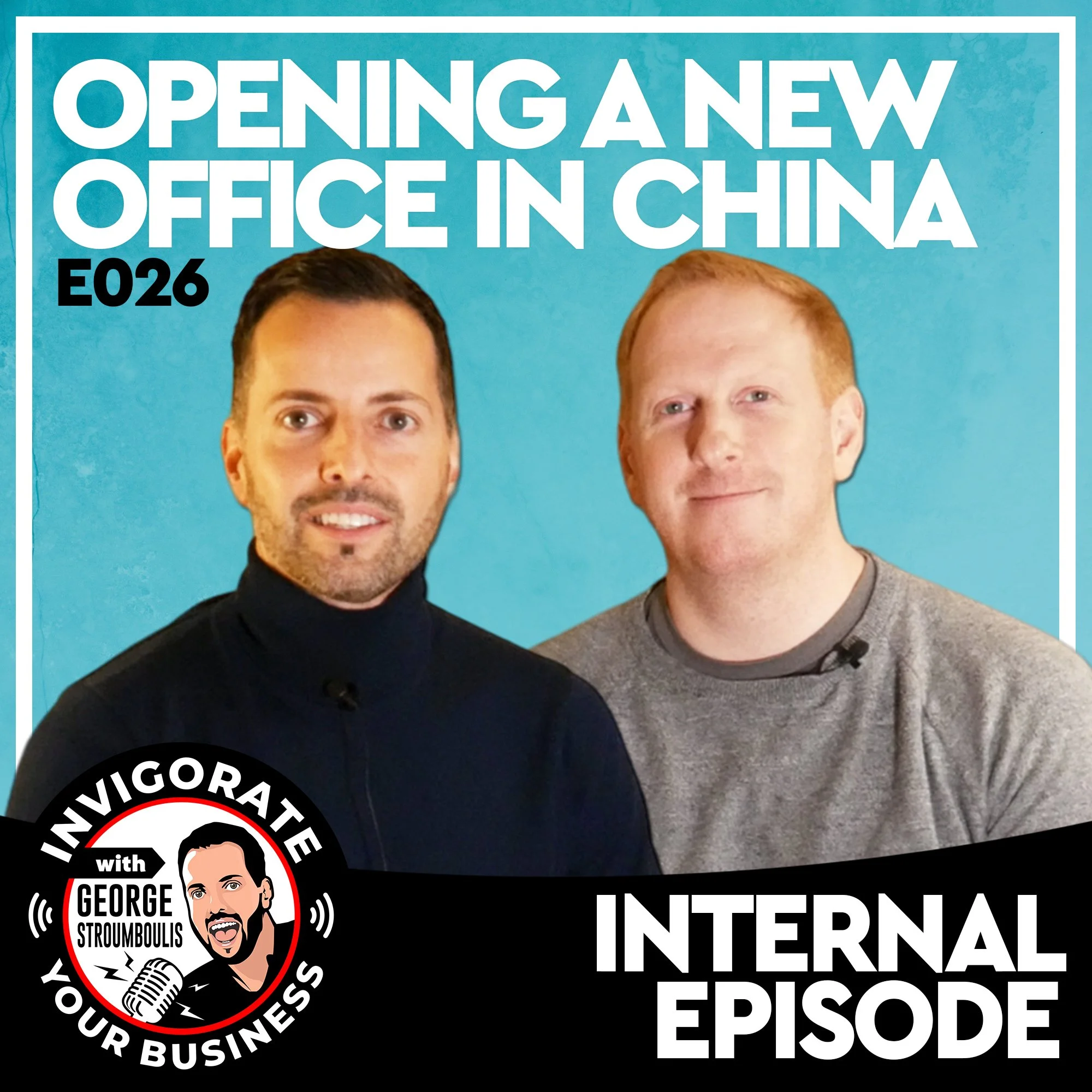
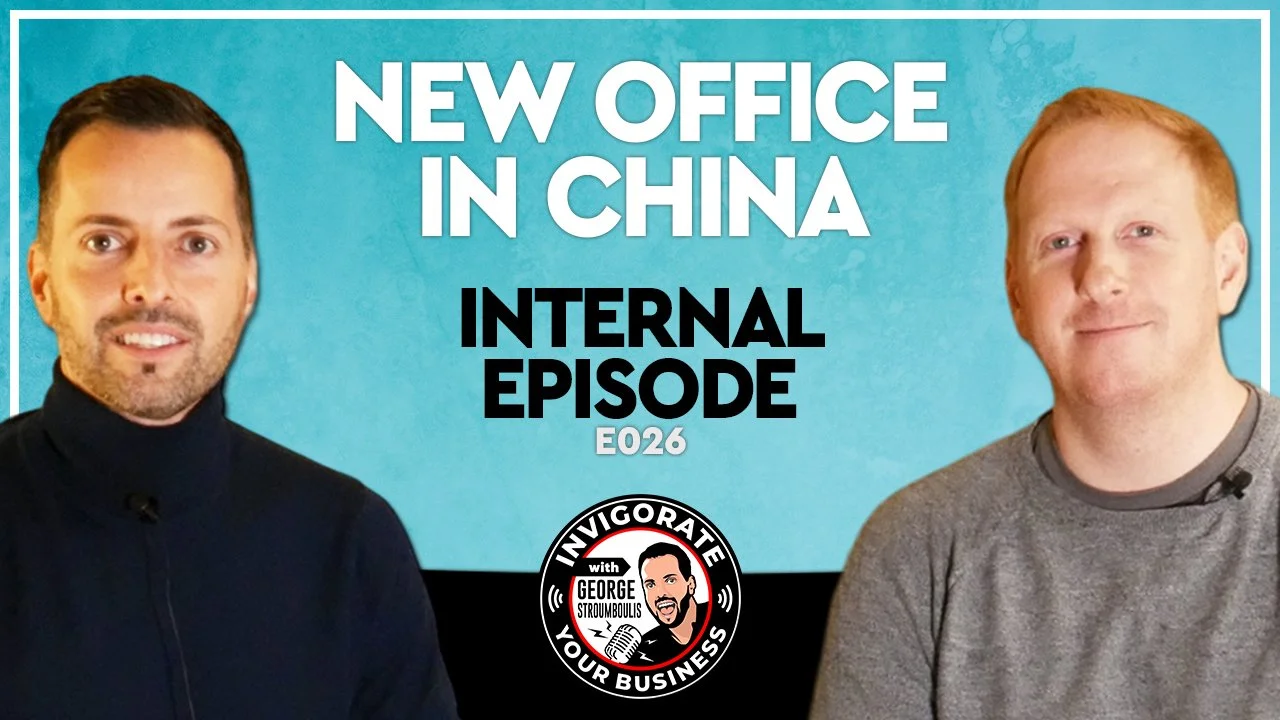
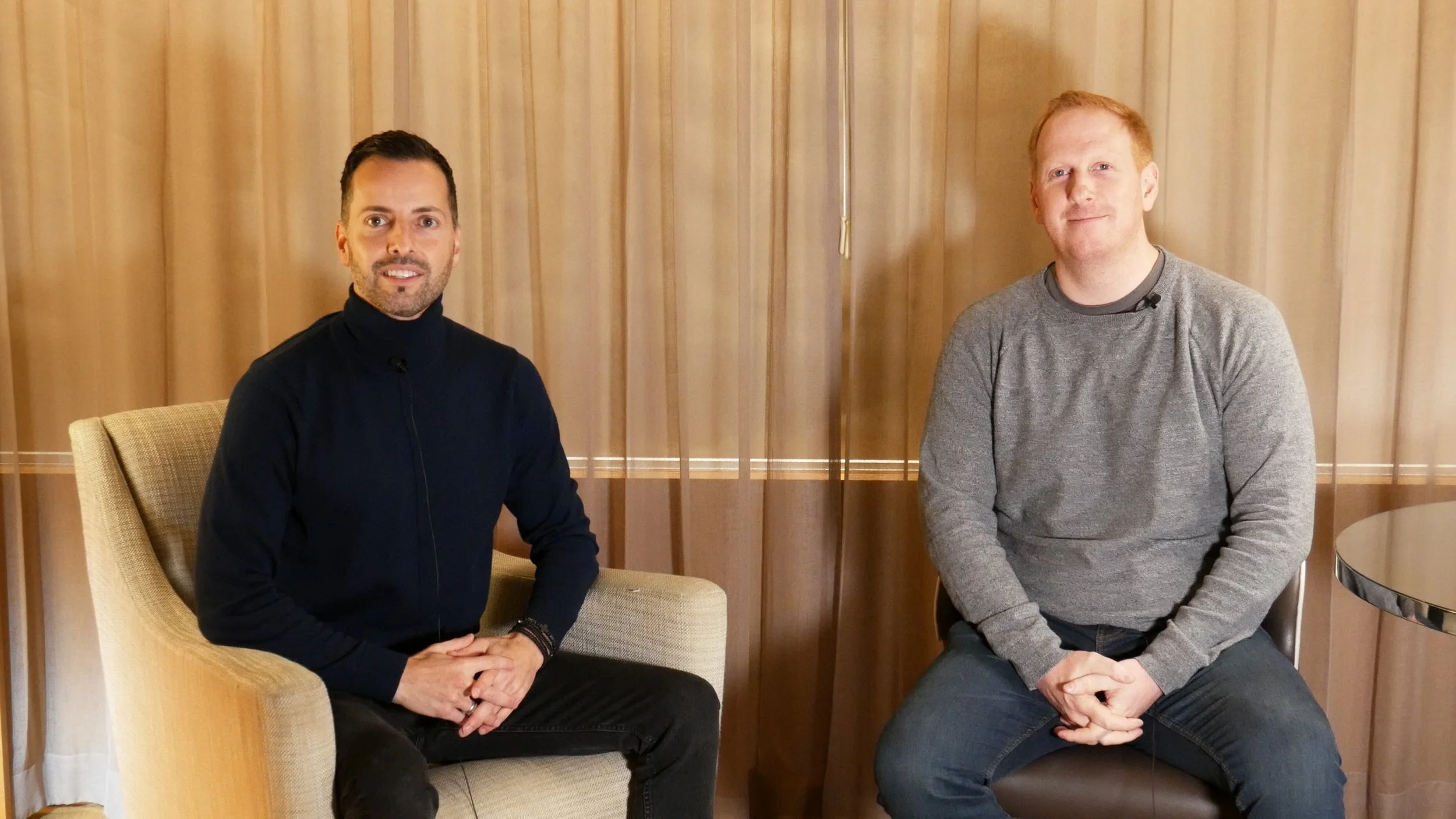
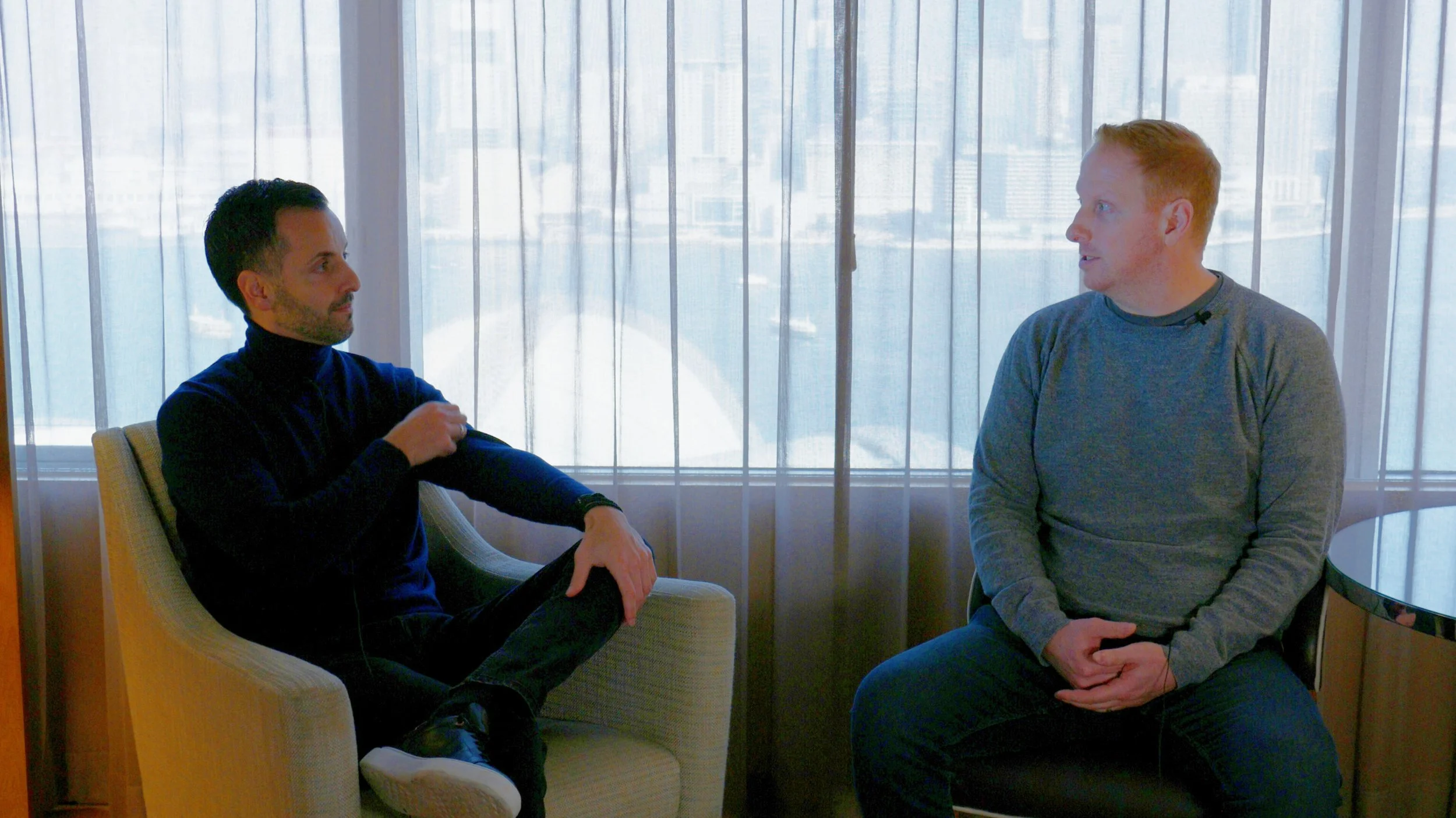
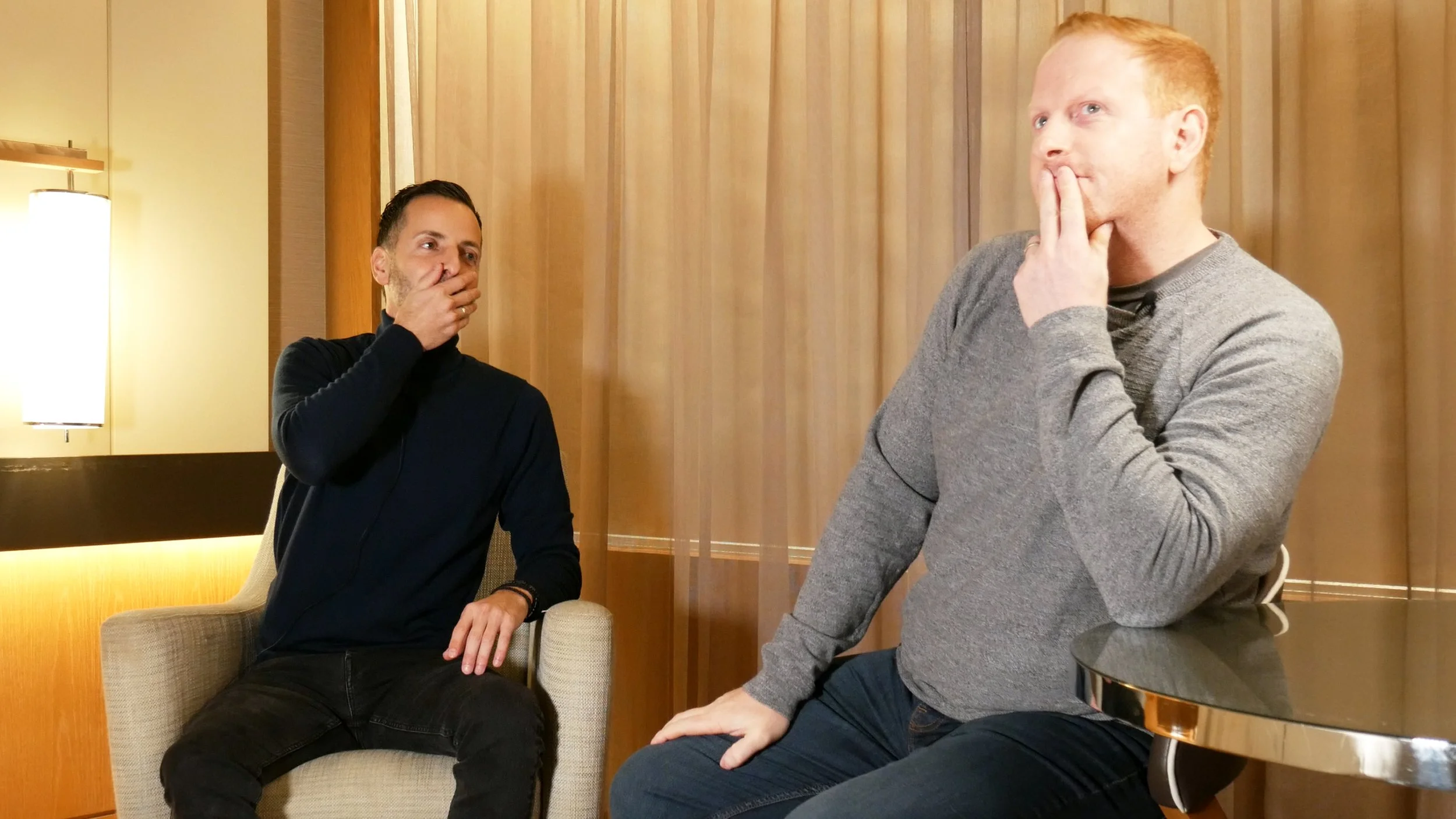
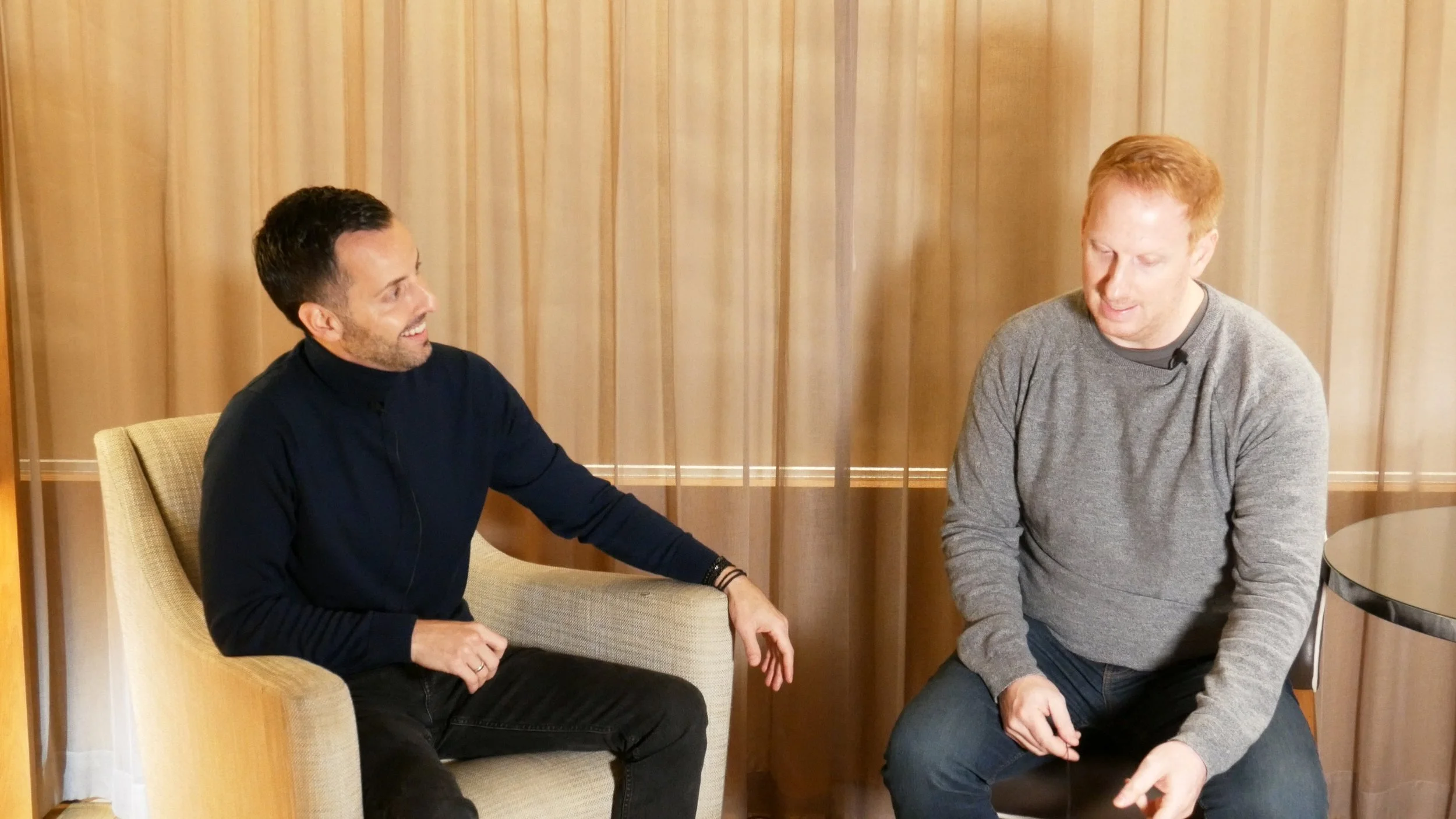
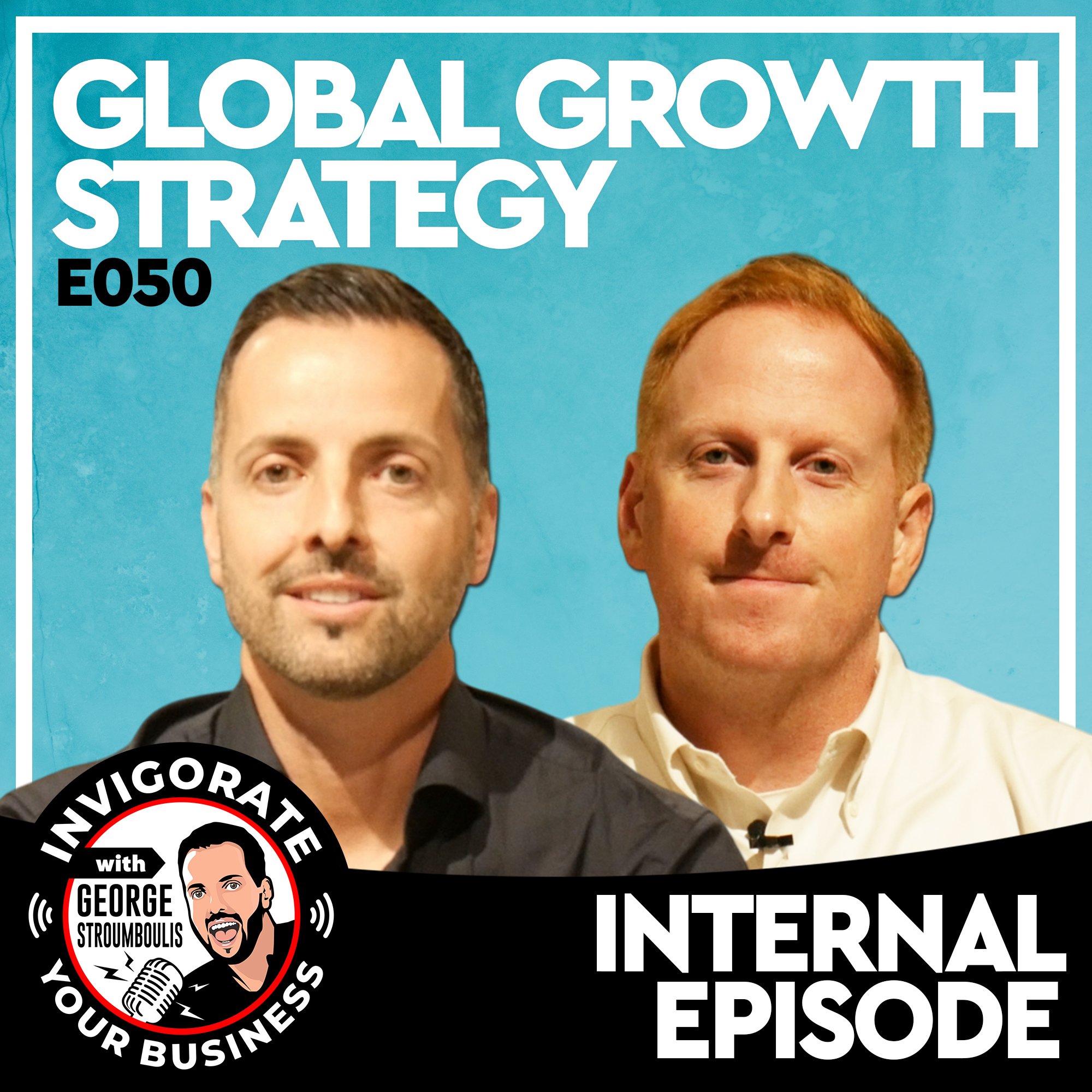


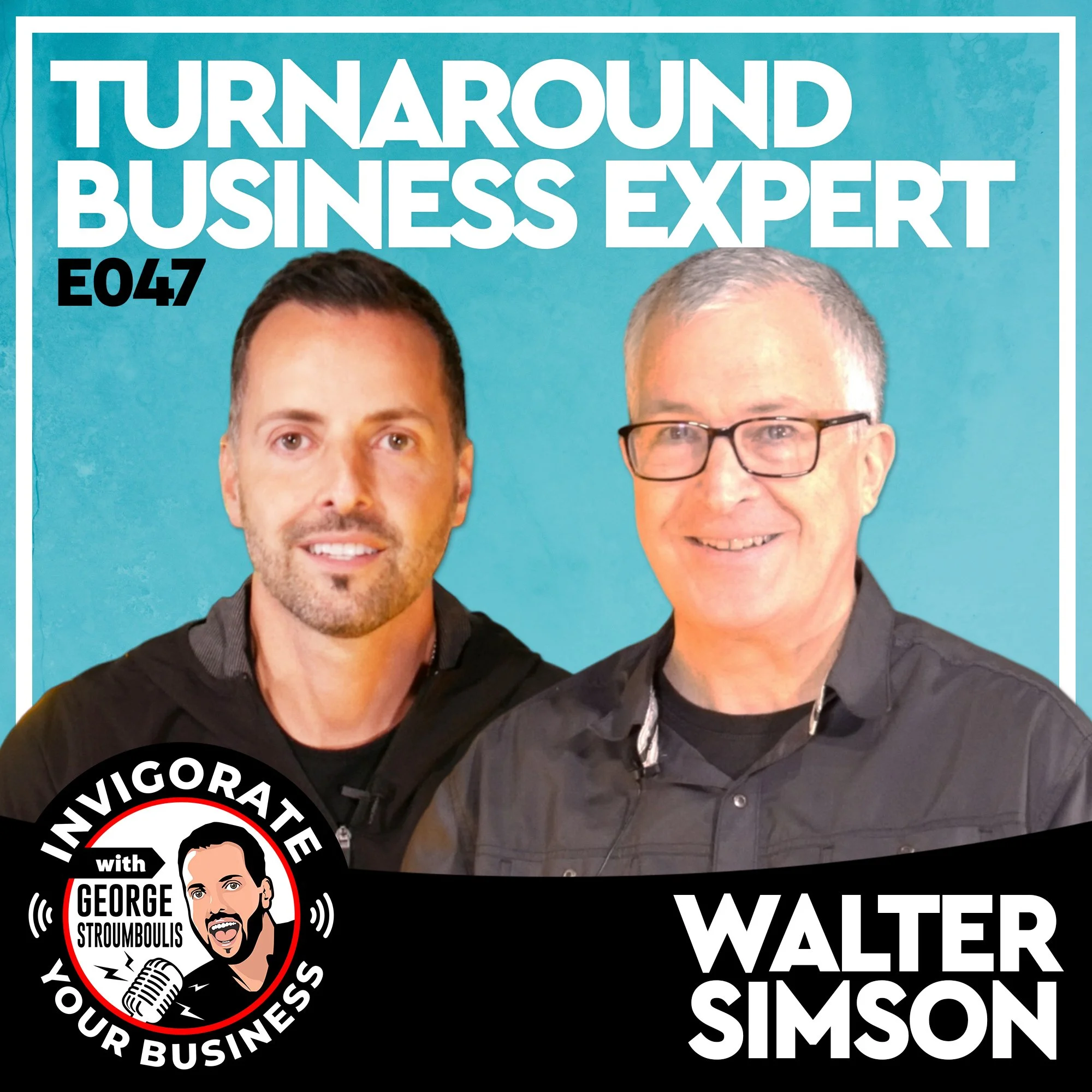
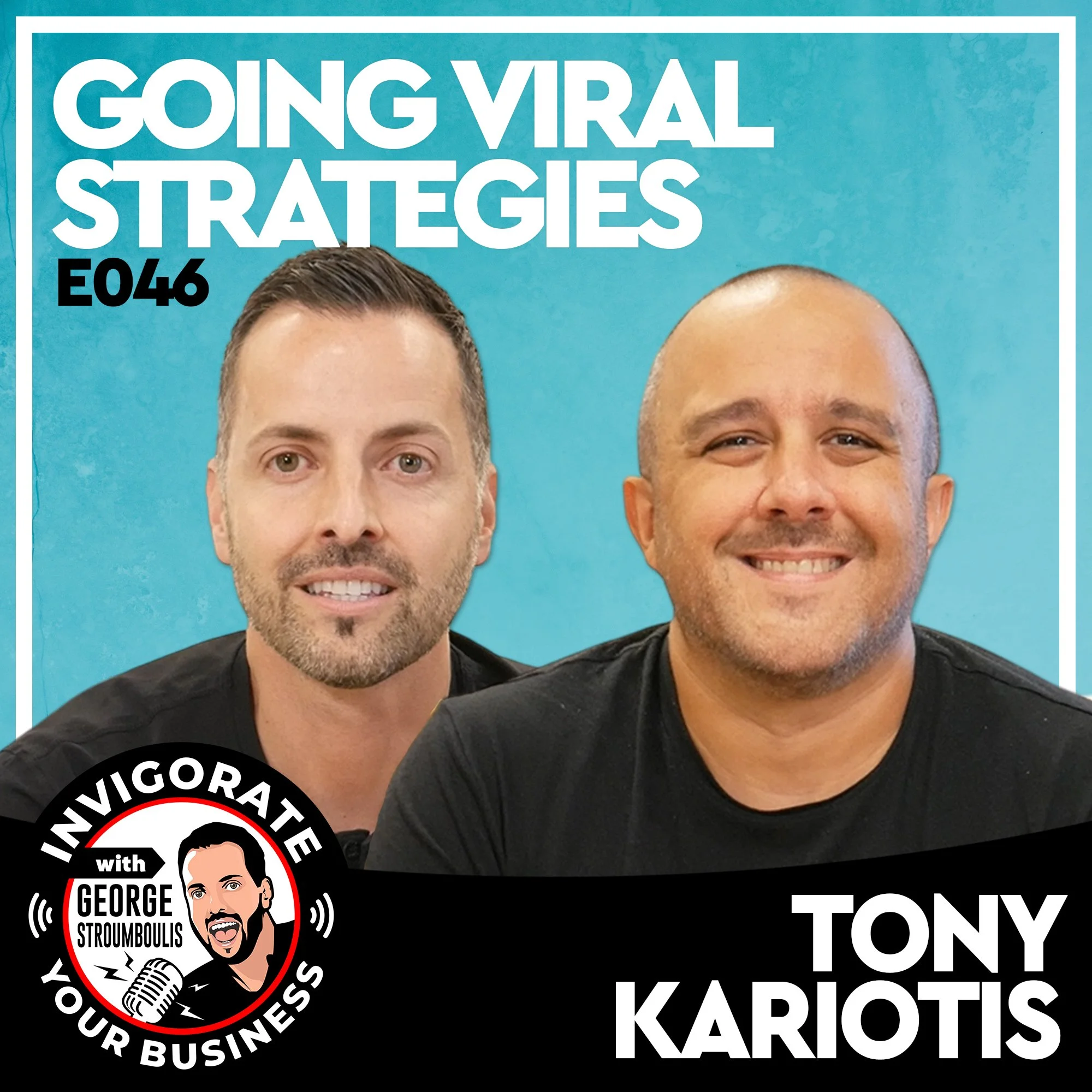

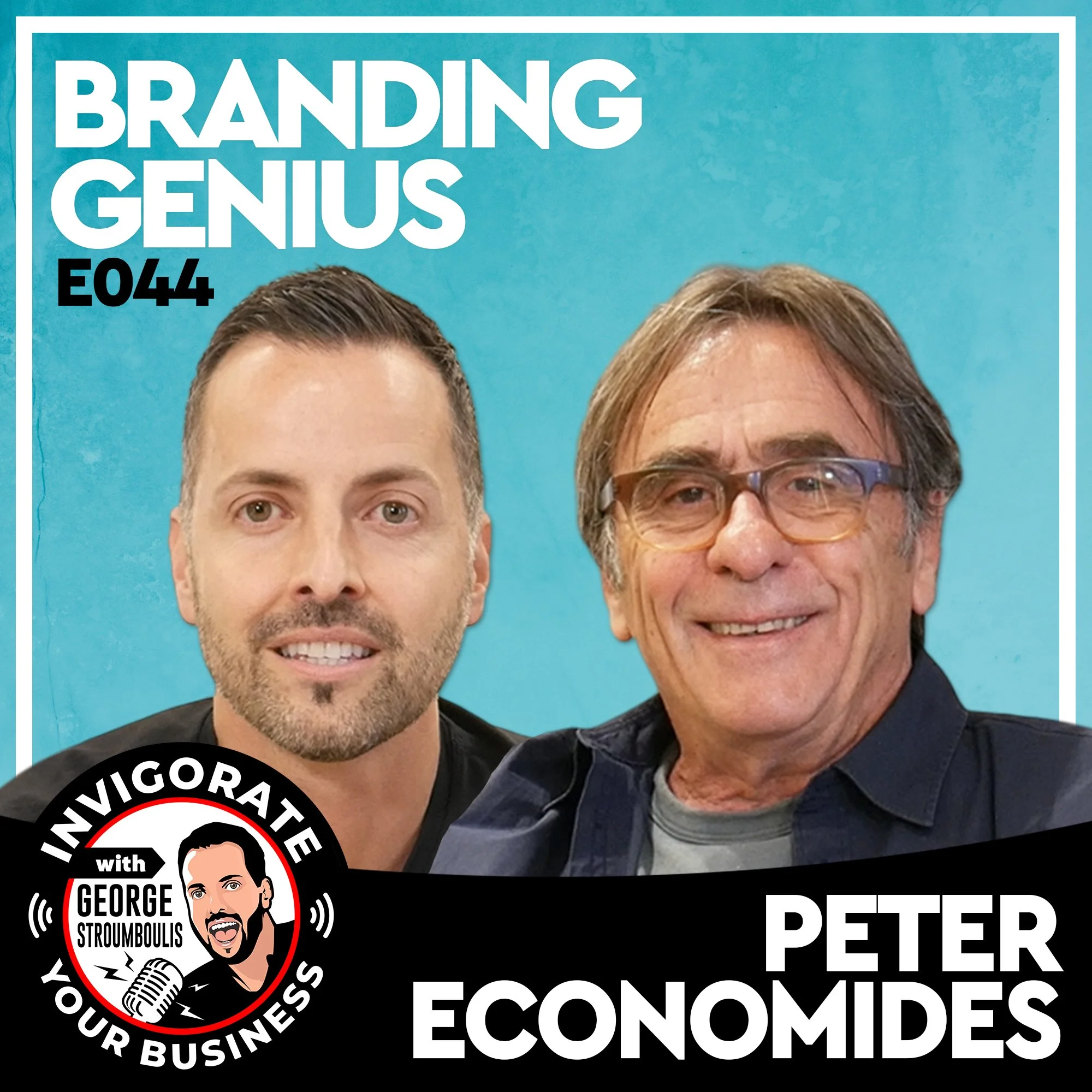
George Stroumboulis sits down with Jim Sogotis in Newport Beach, California on the Invigorate Your Business Podcast to talk about all things financial markets, investments, hedge funds, mutual funds, financial advice and so much more.